Alcohol can be harmful to the human body. Drinking puts a person's physical and mental health at risk - internal organs suffer, the functioning of the most important systems that control the human body is disordered (the effects of alcohol on the immune system are especially dangerous), personality degradation affects the human nervous system.
Effects of alcohol on the body:
- Liver;
- Brain;
- Nervous system and psyche;
- Cardiovascular system;
- Kidneys;
- Digestive system;
- Immune system;
- Muscles and joints;
- Endocrine system;
- Spleen;
- Respiratory system;
- Organs of vision;
- Appearance.
To avoid negative consequences, you must first know how alcohol affects the human body.
Harmful effects of alcohol on the liver
To understand how alcohol affects the liver, it is worth learning what its purpose is. The liver is an organ responsible for removing toxins from the body; Various metabolic processes require its participation. For people who drink a lot of alcohol, it is important to know why alcohol is dangerous for the liver and how it works. When talking about the harms of alcohol, it can be noted that it gradually destroys the liver. Ethyl alcohol penetrates and oxidizes to form a very strong toxin - acetaldehyde. It accumulates in the liver, changes the body and disrupts its function.
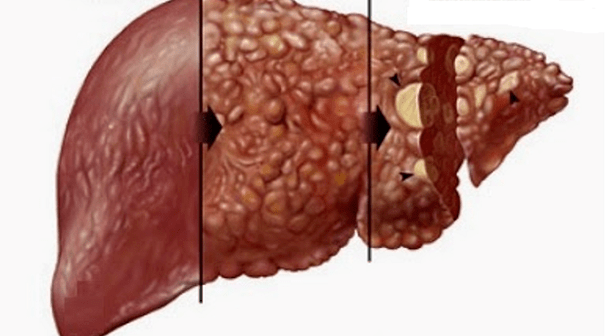
The effects of alcohol on the liver are really devastating. Liver cells die from alcohol and are replaced by wound or adipose tissue, so the body cannot function normally (toxins accumulate in the body and are eventually poisoned).
The most serious consequence of the fact that alcohol is harmful to the human body with excessive consumption is cirrhosis of the liver. With this disease, the structure of the body begins to change, shrinks, the arteries suffer from it: they constrict, the pressure inside rises, the blood stagnates. In this case, the natural result is rupture of the vessel walls and bleeding, which is the cause of many deaths.
The effect of alcohol on the brain
The effects of alcohol on the body primarily affect the brain. In a state of intoxication, a person's cerebral cortex is destroyed, and some parts gradually fall asleep and die.
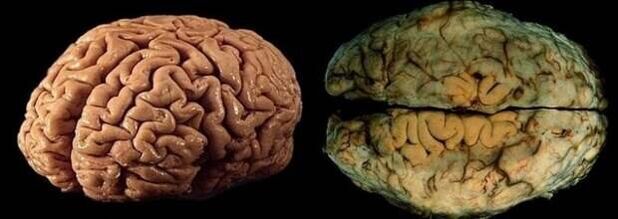
The brains of those who like to drink alcohol change - it is mixed with ulcers, wounds and edema, blood vessels dilate, in some places there are fractures, in dead places there are cysts. These results prove once again the negative effects of alcohol on the human body at any dose.
The effect of alcohol on the nervous system and psyche
People who are addicted to alcohol need to know how alcohol affects the psyche. Regular consumption of alcohol, especially in excessive doses, leads to the destruction of the psyche. A person's personality and behavior change completely, and mental and moral degradation begins. Alcohol and the nervous system interact to destroy personality. The effects of alcohol on sleep can cause insomnia. There are other important consequences - mental disorders and impaired perception of adequate reality. Alcohol is harmful to memory, concentration and motor coordination. It turns out that the effects of alcohol on the human psyche cause great harm to the whole body.
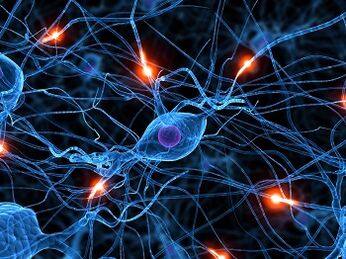
It is necessary to understand in more detail why alcohol harms human mental health. Harmful effects of alcohol on the human body, and especially on the nervous system, damage to nerve fibers and deterioration of conduction, such a disorder in medicine is called polyneuritis. A person loses sensitivity to pain and temperature changes, has numbness, weakness and "cottoniness" in the legs and arms. Other symptoms include increased swelling, sweating, "gas leaks" on the skin, itching and burning, severe pain, and the muscles appear to be compressed as if by a needle.
The most common central nervous system effects of alcohol consumption are:
- Delirium trembles. It is worth knowing why such a situation is dangerous. Hallucinations, delirium, fever and chills appear after long-term cessation of alcohol use, accompanied by suicidal tendencies;
- Encephalopathy. Chronic drinking causes acute vitamin B deficiency in people. Its symptoms are problems with vision and vestibular apparatus, confusion;
- Alcohol dementia syndrome. Loss of basic mental abilities, problems with counting, speaking, perception, concentration, memory;
- Alcoholic epilepsy. This manifests itself in convulsions and seizures in the hanging position;
- Korsakov's psychosis. Loss of sensation in the limbs is associated with significant memory impairment.
Undoubtedly, the mental consequences of alcoholism lead to the degradation of personality, the psychology of behavior is violated.
Cardiovascular problems
Alcohol is harmful to the health and normal functioning of the heart muscle. Heart disease is one of the most common causes of death among drinkers.
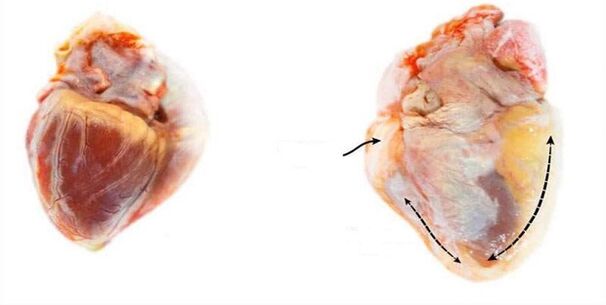
This muscle can expand when the body is exposed to alcohol on a regular basis. In addition, high-dose alcohol results in an increased risk of developing arrhythmias, hypertension, myocardial infarction, stroke, ischemic damage to the heart muscle, and atherosclerosis.
Kidneys and drink
The kidneys are a very important organ. It works as follows: removes fluid from the body, cleanses the blood of toxins and participates in metabolic processes. Regular consumption of alcohol forces the kidneys to work at maximum intensity.
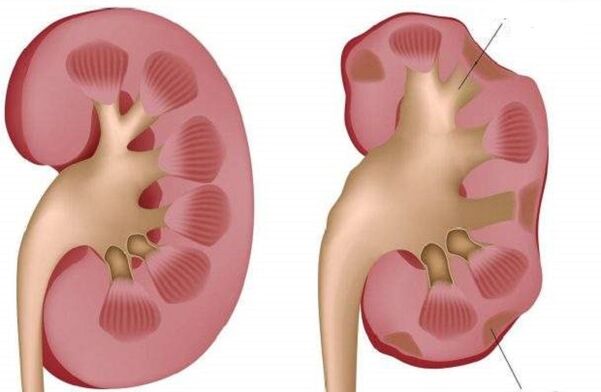
It threatens all pathological conditions - dehydration, metabolic diseases, intoxication, the appearance of stones, pyelonephritis, the development of renal failure, inflammation of the urinary tract, the appearance of cancer.
How alcohol affects the digestive system
Alcohol is a poison for the digestive system. The walls of the esophagus are affected, heartburn occurs, the intestinal reflex is strengthened, the blood vessels in the esophagus become thinner and dilated, and the venous walls may rupture during vomiting, leading to bleeding.
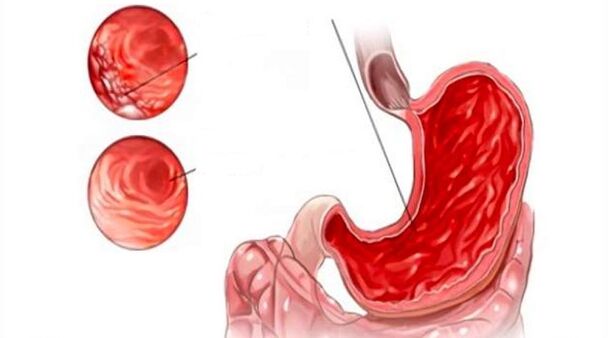
In addition, alcohol causes irreparable damage to the protective membrane of the stomach. The result is premature aging of the body, dysfunction. Typical diseases of people who drink are gastritis, ulcers and even stomach cancer.
The effect of alcohol on immunity
There are two data on how alcohol affects immunity. Drinking in moderation can help you fight colds better. However, the consumption of more alcohol interferes with a person's immunity.
Decreased immunity is manifested by a decrease in the amount of lysozyme, a special protein that is part of saliva, tears and other secretions. This protein neutralizes harmful microbes that enter the body and prevents the development of various infectious diseases. Thus, we can say with confidence that alcohol reduces immunity.
The effect of alcohol on joints and muscles
Muscle tissue suffers from any dose of alcohol, which is very harmful to muscle health. It slows down or stops the growth of muscles, atrophies them, releases them, and alcohol can completely destroy them. This can increase the body's fat reserves. Alcohol and joints are not compatible concepts. The effects of alcohol on the health of the skeletal system are very important because it destroys bone tissue, removes calcium from the body, bones age quickly, become brittle, and fractures often occur. Joints often ache after drinking alcohol.
Joint problems are common in the lives of alcoholics. People who drink often develop arthritis, an inflammation of the joints. Symptoms of Arthritis: Pain in the joints, especially the knees. After another breath, the pain intensifies.
Alcohol retains fluid in the body, edema develops, uric acid is normally excreted and accumulates in the form of salts that settle in the joints, which leads to gout. Excess fluid enters the joint, presses on the walls of the joint cavity, touches the nerve fibers, and after alcohol there is pain in various joints. Over time, as a result of the influence of alcohol, deformation and complete destruction of articular formations occur.
How alcohol affects your appearance
An alcoholic is easily recognized in the crowd. Typical Drink Appearance:
- bluish color of the nose;
- red and swollen face;
- bags under the eyes;
- injury without bruising or falling;
- slit clothes;
- scattered hair.
The effect of alcohol on the skin is also negative. A red color appears, which is explained by increased blood flow under the influence of alcohol. A large load on the arteries causes them to damage, small capillaries explode, causing bruising in the form of blue and red dots on the face. A bluish color is the result of severe vascular damage, the blood does not provide these areas with oxygen well.

To remove alcohol from the body, a large amount of fluid is mixed, dehydration begins, a person who drinks too much alcohol feels a strong thirst, tries to suppress it. Fluid builds up and is slowly expelled as the body tries to protect itself from re-dehydration and builds up swollen water supplies on the face and other parts of the body.
The effect of alcohol on the endocrine system
Alcohol and its effects on human health are also linked to the functioning of the hormonal system. Main bodies:
- Thyroid gland (regulates metabolism);
- Pituitary and hypothalamus (controls the functioning of the whole system);
- Pancreas (responsible for insulin production);
- Epiphysis (produces hormones that affect sleep, blood circulation and nervous system);
- Adrenal glands (produces adrenaline);
- Thymus (regulates the growth and development of immune cells);
- Gonads (produces male and female hormones).
The effects of alcohol on the thyroid gland and other organs of the endocrine system are such that it reduces the production of some hormones and increases the production of others. For example, men have an advantage in female hormones and a decrease in male hormone levels. The opposite is true for women who drink. Hormonal disorders have a negative impact on the condition of the whole organism. Some endocrine pathologies are associated with congenital gene mutations, and these mutations are often caused by excessive alcohol consumption. Normal interaction of alcohol and the thyroid gland, as well as other endocrine organs, is impossible.
How alcohol can affect the spleen
The spleen often suffers from frequent alcohol use. This organ acts as a user of old and damaged blood cells in the body. It is a reserve blood reservoir that supplies the blood vessels of the circulatory system if needed. In addition, this organ cleanses the blood of pathogenic microorganisms.

Pain in the left hypochondrium can signal spleen problems caused by excessive drinking. It is easy to explain why alcohol consumption is dangerous and why the spleen hurts. Often this organ is enlarged, splenic infarction, abscess, it is possible in severe cases that require removal of this organ. The consequences of excessive consumption of any type of alcohol can seriously impair the function of the spleen and lead to death.
Effects on the respiratory system
Drinkers should be aware of the effects of alcohol on lung health. Alcohol vapors affect the respiratory mucosa, which contributes to the development of pneumonia, bronchitis, chronic pharyngitis and laryngitis (hence the low noise of drunks). Moreover, these diseases are difficult and long-lasting. Pneumonia can lead to pneumosclerosis (hardening of the lung tissue). Alcohol in the blood causes the destruction of lung tissue and their pathological enlargement (emphysema).
In the example of the lungs, you can see the irreparable damage that alcohol does to the human body. In large doses, alcohol disrupts the respiratory function of the lungs, and in some cases, breathing can stop completely. Delirium tremens are often accompanied by inflammation and pulmonary edema. There is also a link between alcohol and lung cancer.
The effect of alcohol on human vision
Not everyone knows exactly whether alcohol is harmful to vision and why alcoholics have eye pain. Alcohol increases intracranial pressure. This causes damage to the blood vessels of the eyes and numerous small bleedings, the supply of oxygen to the muscles is disrupted, and they are in a state of constant tension. This condition can result in atrophy of the eyeball muscles and deterioration of vision.
In addition, alcohol can affect the optic nerve by affecting the nerve fibers of the eye. The most serious effect of alcohol on the visual system is blindness.
Alcoholism and its consequences have a devastating effect on the body, and the psyche can change significantly. Only by stopping drinking can you stop the process of destruction of your body.































